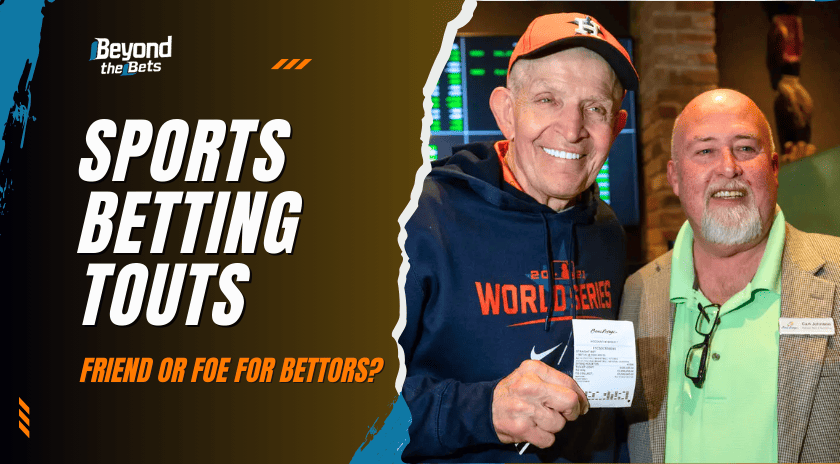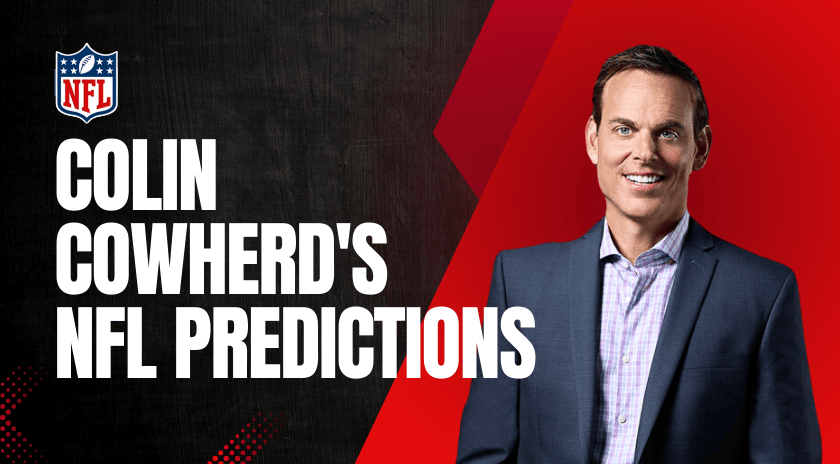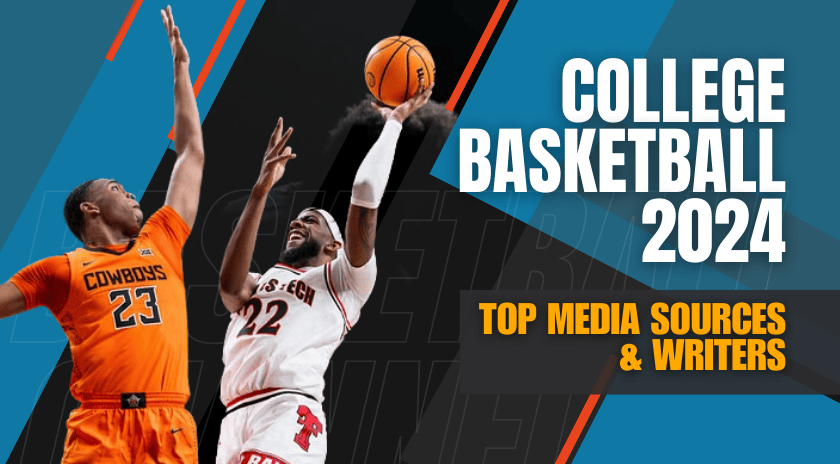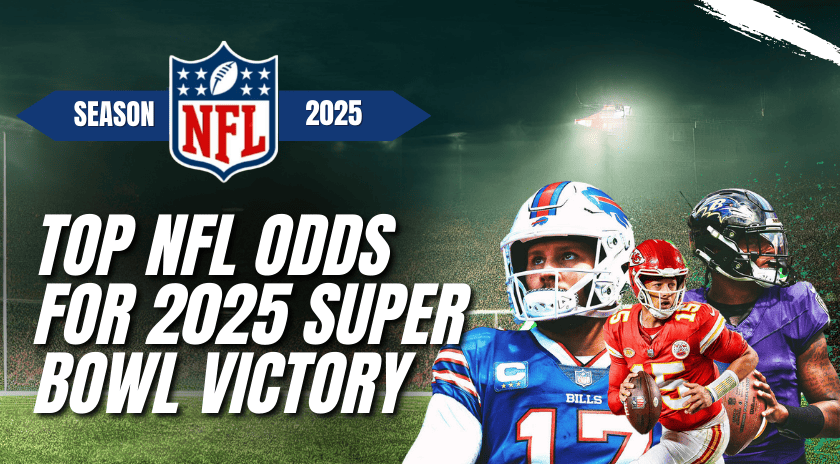Sports Betting Touts: Friend or Foe for Bettors?
New sports bettors are often tempted to get so-called ‘ professional advice from betting advisors, or touts who claim to know the most profitable picks. These touts often boast about their win rates and promise significant financial returns by claiming to have unique insights into sports betting. Such claims are how famous handicappers like Billy Walters and Simon Hunter rose to prominence.
However, these services often come with substantial subscription fees and questionable effectiveness, and achieving consistent success that they claim to do is challenging.

Understanding Touts and 'Paying for Picks' in Sports Betting
In simple terms, paying for picks involves hiring a sports pick service or a tout to give you sports betting advice, in the form of game analysis, team or outcome recommendations, and sometimes bet sizing. Customers use their advice to reduce their risk when they bet on online sportsbooks.
Sports handicappers employ sports experts in various fields to offer advice and predictions for a fee. These experts claim to perform detailed research and calculations to formulate their betting picks, and their fees can range from one-time offers to annual or monthly subscription plans.
Pros and Cons of Using Paid Picks and touts While the convenience of obtaining bet advice without having to do any sort of research is appealing, there are a number of drawbacks to using paid picks:
- Challenges in verifying a tout’s expertise
- Subscription fees can be substantial
- There's no guarantee profits will offset the cost of the service
- Fees apply regardless of bet outcomes, with losses not reimbursed
- A significant bankroll is necessary to rationalise expenses
Top Sports Betting Touts/Handicappers
We’ve compiled a list of expert handicappers who have crafted their reputations through years of accurate predictions and strategic insights. Their expertise spans across major sports and they offer a unique blend of analysis, experience, and sports betting success.
Bill Krackomberger
Krackomberger attributes his success to strict money management and the discipline to only bet when the value exceeds the risk. His focus is primarily on NFL and college football, where his methodical approach and ability to decipher complex odds give him an edge.
Sports Experience: While not a former athlete, Bill's long-standing fascination with sports and numbers led him to sports betting as a career. This mathematical curiosity often translates into a sophisticated and unique analysis of games.
Legitimacy: Bill regularly features on the WagerTalk Podcast, where he shares insights and promotes ethical betting habits. His contributions to the Gambling With An Edge blog further establish his standing as a respected voice in the community.
Teddy Covers (Theodore Servansky)
Teddy’s analytical skills shine in basketball and football, where he applies his financial market principles to identify mispriced bets. His ability to break down complex statistical data into actionable advice is key to his success.
Sports Experience: Although Teddy did not play sports professionally, his early career in financial markets honed his analytical skills, which he aptly applies to sports betting.
Legitimacy: Teddy has been quoted by major news outlets like ESPN and The New York Times for his expert insights, establishing his credibility in the sports world.
Steve Fezzik
Fezzik excels across multiple sports, including NFL, NBA, and MLB, leveraging game theory and unmatched market understanding. His success stems from exploiting line movements and finding value bets before the market adjusts.
Sports Experience: Fezzik's background in economics and statistics provided a solid foundation for his transition into professional sports betting, where he applied quantitative analysis techniques to predict outcomes.
Legitimacy: Fezzik has demonstrated his betting prowess publicly, by winning the Las Vegas Hilton SuperContest twice, a feat which was covered by the Los Angeles Times.
Bob Voulgaris (Haralabos Voulgaris)
Voulgaris became legendary for his expertise in NBA betting, using proprietary models to predict game outcomes more accurately than sportsbooks. His understanding of coach strategy and player performance nuances gives him an edge.
Sports Experience: His early exposure to sports, through his father's passion for high-stakes poker and sports betting, influenced his analytical approach to NBA games.
Legitimacy: Bob serves as a consultant for NBA teams which demonstrates his deep understanding of basketball and his status as a legitimate sports expert.
The Whale
Claiming success in high-volume betting across major sports, The Whale says his use of advanced statistical models to predict outcomes sets him apart. His focus areas include the NFL, NBA, and MLB.
Sports Experience: Though details of his background are vague, The Whale suggests a long history of engagement with sports and data analysis.
Legitimacy: The Whale has appeared on various forums and social media platforms, engaging with followers and sharing insights and many bettors have found his advice to be valuable.
How to Identify a Trustworthy Tout in Sports Betting
Since a large majority of people who require the services of a tout are usually novice bettors, we’ve decided to put together a list of handicapper green flags to look out for.
Examine Past Performance: Authentic touts maintain realistic winning percentages. A tout or pick service that claims that they have consistently won 75% of the time or more of bets usually signals dishonesty. Such unrealistic and exaggerated promises often lead to financial losses for followers.
Knowledge and Expertise: A reputable tout will obviously have a deep understanding of sports betting, which includes the terminology, as well as mathematical aspects. A true expert will also recognize and be transparent about the limits of their expertise.
Proven Track Record and: Trustworthy touts maintain detailed records of their picks. You should be wary of touts who selectively highlight certain periods of success without providing a full account of their betting history.
Industry Respect: Genuine professionals have established histories of success and are recognized by their peers. This recognition and reliability is difficult to achieve in the sports betting industry and comes from consistent transparency and success over time, not from selective displays of their best bets.
Association with Reputable Media: Experts often associated with major media outlets or sportsbooks lend more credibility. They frequently contribute to platforms like FanDuel Sportsbook, DraftKings Sportsbook, and PointsBet Sportsbook, and offer insights based on thorough analysis. While not all media-affiliated analysts are experts, these affiliations offer a level of visibility and accountability that can aid in assessing their reliability.
However, it's important to remember that a handicapper’s association with a reputable media source doesn't always guarantee their credibility. A good example of the risks involved in trusting touts can be seen in the case of Covers.com who hired an unqualified 21-year-old, Jack Zito who had blatantly lied about his qualifications and betting wins.
Payment Models Tied to Success: Consider handicappers who charge based on successful picks. This arrangement implies a commitment to providing winning advice since their compensation depends on your betting success. However, it’s important to note that such arrangements are rare.
Indicators of Unreliable Sports Betting Touts
Unfortunately, the sports betting pick services sector is packed with scams and fraudsters. Now that we’ve gone over the green flags to keep an eye out for, we need to go over the all-important red flags to watch out for as well.
To avoid falling prey to tout scams, watch for the following warning signs:
Lack of Verifiable Records: Many touts fail to provide tangible evidence of their claimed success. They might boast about their performance or profits on social media or websites, but they do it without offering any way to verify these claims.
Excessive Showmanship: Touts that project an exaggerated image of success through images of wealth, luxury items, or misleading betting records—are likely attempting to deceive potential clients. You need to focus on their proven skills and past results and not be swayed by flashy visuals
Unsolicited Direct Messages: Receiving direct messages from self-proclaimed betting experts offering picks for a fee is the biggest red flag in our book. Authentic professionals do not need to aggressively solicit business through direct contact or high-pressure sales tactics but instead rely on their track records to attract customers.
Showcasing Only Winning Bets: If a tout frequently posts winning ticket images without demonstrating losses, question their authenticity. Some may purchase these images or bet on both sides of a game to guarantee they can display a win.
Why Do Successful Touts Sell Picks?
Now you might be wondering (and rightly so) if a sports handicapper is so good at what they do and they are consistently winning, why do they need us to pay for picks? It seems like a big contradiction.
The core issue with successful touts selling picks is the apparent contradiction it poses. If these advisors are consistently winning, their betting activities should naturally increase their bankroll, eliminating the need for extra revenue from pick sales. This situation raises questions about the genuine profitability of such touts.
Touts offer several reasons for selling picks:
- Limited Betting Opportunities: Some touts claim that bookmakers limit their bet sizes once they become too successful, and selling picks helps offset these limitations. However, any experienced bettor can tell you that to avoid such limitations they could simply use multiple accounts or betting syndicates to evade bookmaker restrictions. In fact, when a tout sells their predictions, it could reduce their own benefit because it lets other bettors in the market quickly know about their strategy.
- Reducing Variance: Other touts argue that income from selling picks provides a more stable cash flow compared to the inherent volatility in betting winnings. In our opinion, this excuse reeks of poor bankroll management or flaws in their betting strategy itself. Effective bankroll management techniques should suffice to manage financial variability without needing to sell picks.
- Supplementary Income: A minority of touts state that they sell picks simply to boost their already substantial betting income. This argument for selling picks merely suggests potential limits to the scalability of their betting strategy or an attempt to monetize their reputation before market changes diminish its effectiveness.
Are Sports Picks worth it?
Generally, subscribing to a service or paying an individual for gambling picks might seem appealing to someone who bets for fun, doesn’t know much about sports or betting, or lacks the time to research before making bets.
However, it's not recommended to pay for picks. Most people offering these services are not genuine experts in betting, and even if they were, buying picks puts you at a financial disadvantage from the start. For casual bettors with a limited budget for betting, this means you're spending money you could have bet with, reducing your chances of making a profit. The expense of buying picks is unlikely to be offset unless you're working with a very large budget or the picks come from someone with an exceptionally high success rate, which is rare.
For those not interested in doing their own research, it’s still advised against paying for picks. Relying on someone else to make decisions for you not only takes away from the personal satisfaction of making your own picks but also doesn't guarantee enough returns to cover the costs of buying those picks in the first place.
What Can You Learn from a Winning Tout?
While there are many reasons to be cautious about following touts and paying for picks, there might be unique situations where following a successful tout could be considered. If the tout genuinely has a track record of success, the cost of their advice is low compared to your budget, and you can place bets quickly enough to use their insights effectively, you could in theory benefit from their advice. Here are a few things you can learn from a tout that you can use in your betting strategy:
Understanding Market Behavior
One valuable lesson from following a successful tout is gaining insight into market behaviour. When a winning tout shares information, it influences the betting market. Observing how this information affects the market can teach you about the source of market movements. You'll learn which sportsbooks adjust their lines first and how swiftly they react, offering insights into the dynamics within the sports betting industry.
Market Elasticity
Another concept to understand is market elasticity, which refers to how much and how quickly the market responds to new information. For example, if a tout suggests a bet has value up to a certain point, you might see bettors exceed this limit, further influencing the market. This scenario provides an opportunity to assess whether the market overreacts to the tout's sports betting picks.
Following a winning tout allows you to observe these market movements firsthand. You can use this information strategically, such as by exploiting market reactions for arbitrage opportunities. If a tout advises an under bet and the market shifts accordingly, you might find value in betting the over as the line adjusts.
In our opinion, while following a tout isn't universally recommended, doing so under the right circumstances can offer lessons in market behaviour and elasticity, and you can turn their information into a tool for more informed betting decisions.




